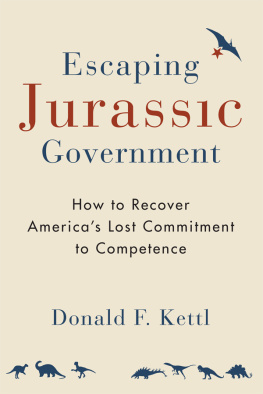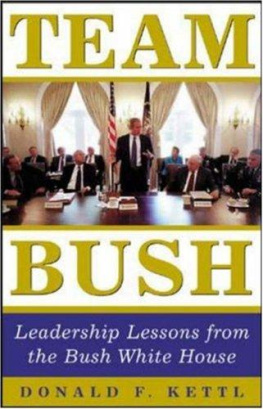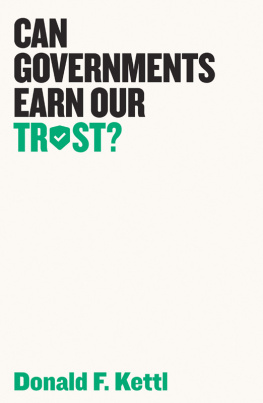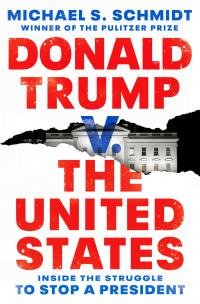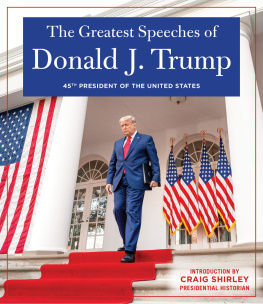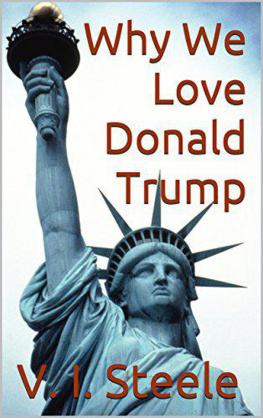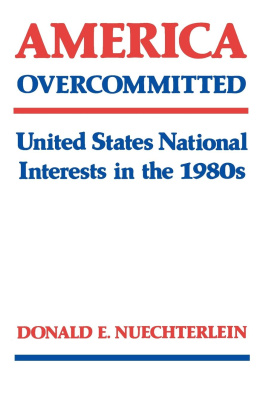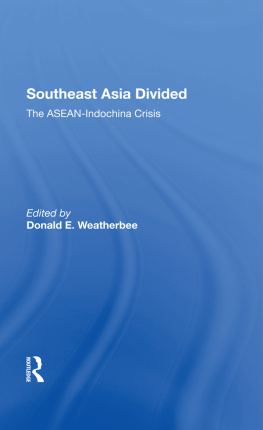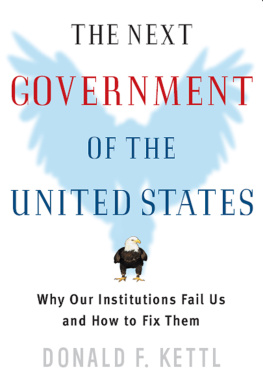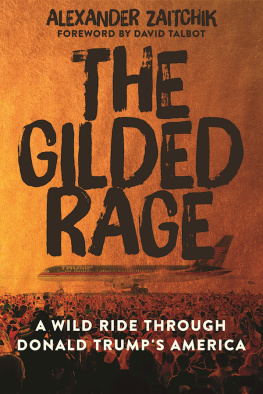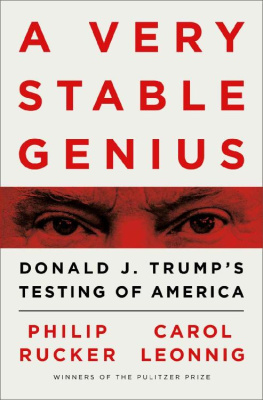Donald F. Kettl - The Divided States of America
Here you can read online Donald F. Kettl - The Divided States of America full text of the book (entire story) in english for free. Download pdf and epub, get meaning, cover and reviews about this ebook. year: 2019, publisher: Princeton University Press, genre: Politics. Description of the work, (preface) as well as reviews are available. Best literature library LitArk.com created for fans of good reading and offers a wide selection of genres:
Romance novel
Science fiction
Adventure
Detective
Science
History
Home and family
Prose
Art
Politics
Computer
Non-fiction
Religion
Business
Children
Humor
Choose a favorite category and find really read worthwhile books. Enjoy immersion in the world of imagination, feel the emotions of the characters or learn something new for yourself, make an fascinating discovery.

- Book:The Divided States of America
- Author:
- Publisher:Princeton University Press
- Genre:
- Year:2019
- Rating:5 / 5
- Favourites:Add to favourites
- Your mark:
- 100
- 1
- 2
- 3
- 4
- 5
The Divided States of America: summary, description and annotation
We offer to read an annotation, description, summary or preface (depends on what the author of the book "The Divided States of America" wrote himself). If you haven't found the necessary information about the book — write in the comments, we will try to find it.
The Divided States of America — read online for free the complete book (whole text) full work
Below is the text of the book, divided by pages. System saving the place of the last page read, allows you to conveniently read the book "The Divided States of America" online for free, without having to search again every time where you left off. Put a bookmark, and you can go to the page where you finished reading at any time.
Font size:
Interval:
Bookmark:
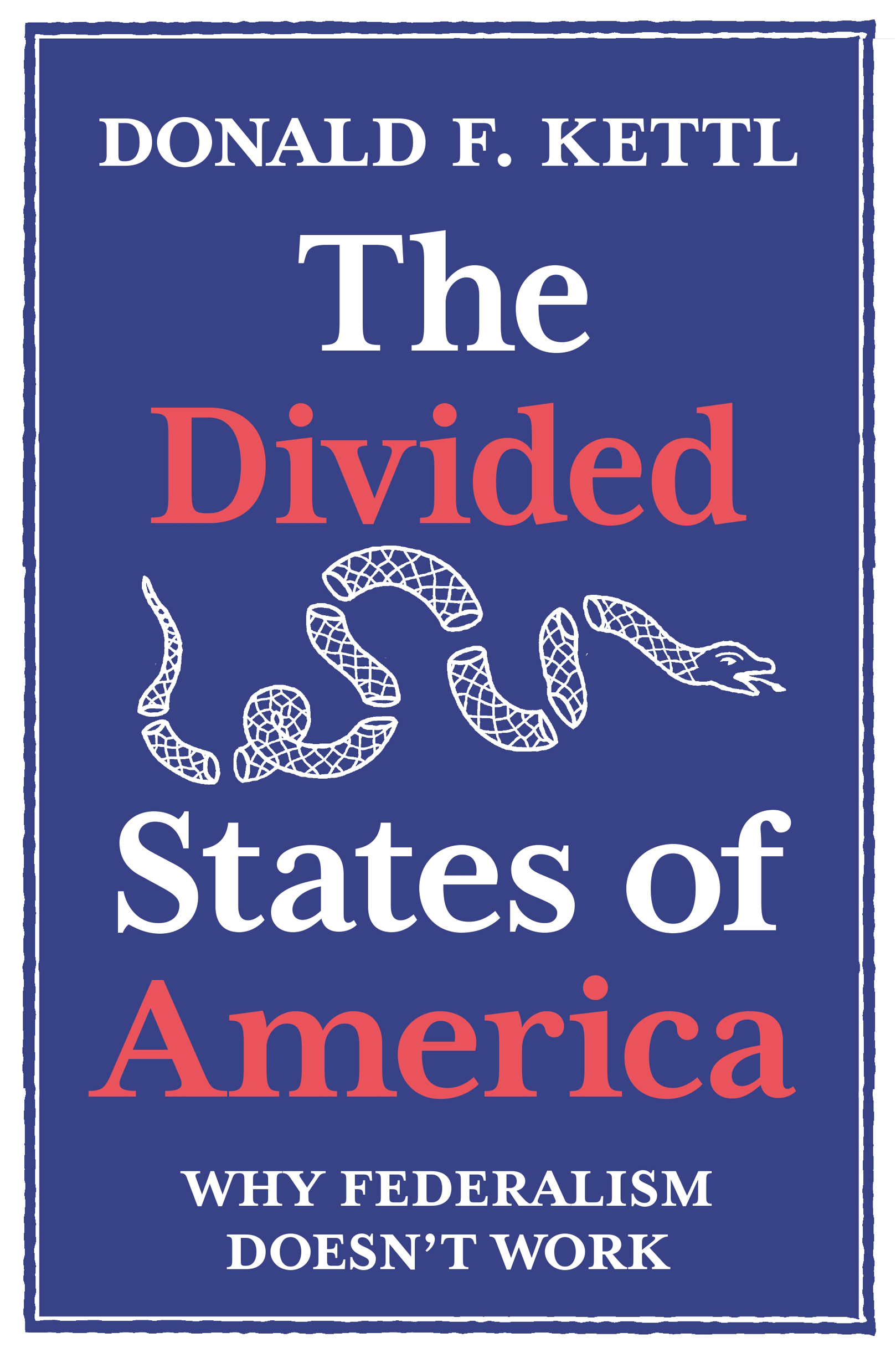
THE DIVIDED STATES OF AMERICA
The Divided
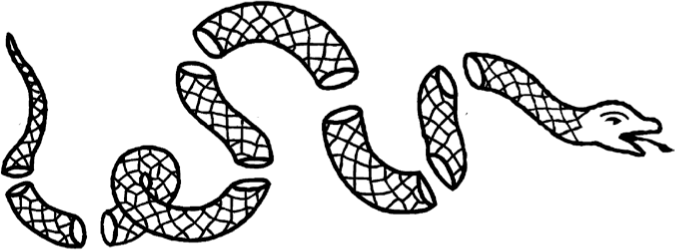
States of America
WHY FEDERALISM
DOESNT WORK
DONALD F. KETTL
PRINCETON UNIVERSITY PRESS
PRINCETON & OXFORD
Copyright 2020 by Princeton University Press
Requests for permission to reproduce material from this work should be sent to permissions@press.princeton.edu
Published by Princeton University Press
41 William Street, Princeton, New Jersey 08540
6 Oxford Street, Woodstock, Oxfordshire OX20 1TR
press.princeton.edu
All Rights Reserved
Library of Congress Cataloging-in-Publication Data
Names: Kettl, Donald F., author.
Title: The divided states of America : why federalism doesnt work / Donald F. Kettl.
Description: Princeton, New Jersey : Princeton University Press, 2020. | Includes bibliographical references and index.
Identifiers: LCCN 2019024582 (print) | LCCN 2019024583 (ebook) | ISBN 9780691182278 (hardback) | ISBN 9780691201054 (ebook)
Subjects: LCSH: Federal governmentUnited StatesHistory. | States rights (American politics)History. | EqualityGovernment policyUnited States. | United StatesSocial policy.
Classification: LCC JK311 .K47 2020 (print) | LCC JK311 (ebook) | DDC 320.473/04dc23
LC record available at https://lccn.loc.gov/2019024582
LC ebook record available at https://lccn.loc.gov/2019024583
Version 1.0
British Library Cataloging-in-Publication Data is available
Editorial: Bridget Flannery-McCoy and Alena Chekanov
Production Editorial: Kathleen Cioffi
Text Design: Lorraine Doneker
Jacket Design: Layla Mac Rory
Production: Erin Suydam
Publicity: James Schneider and Kate Farquhar-Thomson
Copyeditor: Cynthia Buck
- vii
This book grew out of a concern that one of the most interesting, fundamental, and important institutions of American politicsfederalismhas largely fallen from public view and scholarly debate. The nations founders would surely be amazed to discover that one of their biggest and most important ideas, focused on how best to divide power between the federal government and the states, has gotten so little attention in the twenty-first century. Issues of federalism almost destroyed the effort to declare independence from George III. It nearly prevented the ratification of the Constitution following the victory over the Redcoats. And seventy years later, some of the biggest issues that the founders ducked at the beginning resurfaced in the Civil War and nearly ended the grand American experiment.
It would be hard to imagine anything in American politics more important. That makes it equally hard to conceive of why it could have vanished from public view and become no longer a subject of intense debate. Franklin D. Roosevelt rebalanced federal and state power as part of the New Deal and his efforts to battle the Great Depression. Dwight Eisenhower transformed federalism by creating the interstate highway system. In the 1960s, Lyndon B. Johnson made federalism initiatives the central part of his Great Society. Richard Nixons sweeping domestic agenda was christened the New Federalism. Ronald Reagan proposed a fundamental swap of federal and state responsibilities. But after the mid-1980s, there was little national attention to the truly fundamental issues of federalism. The White House Office of Intergovernmental Affairs, which once had been the center of the presidents efforts to haggle over grand policy designs and big budget proposals, now increasingly dealt with state and local governments as one more constituent group to be managed. A truly great federal institution, the US Advisory Commission on Intergovernmental Relations, was shuttered in 1996, in a budget-cutting move, because its work no longer seemed very important.
In the academic world, leading departments of political science and schools of public affairs once regularly offered courses in federalism, but those courses have become hard to find. A small handful of leading scholars continue to plow the fields, and Publius: The Journal of Federalism continues to publish important research papers. But its hard to escape an essential conclusion: one of the most important and fundamental institutions on which the nation was builtindeed, James Madisons most essential inventionhas slipped away from public debate and scholarly investigation.
This might make sense if federalism were no longer interesting or if it no longer mattered. But on the first point, Lin-Manuel Miranda demonstrated in his musical Hamilton not only that federalism remains interesting but that people will also pay enormous prices to listen to songs about it. A prime rule of every Broadway musical is to stage a boffo opening to the second act. In Hamilton, the second act gets rolling with The Room Where It Happens, one of the shows best-known songs; its about Alexander Hamiltons plan for the federal assumption of the state debt after the Revolutionin other words, its about the balance of federal-state power. So theres strong evidence that federalism remains interesting.
Federalism also continues to mattera lot. One of the most fundamental and wrenching issues of twenty-first-century America is the rising level of inequality. As the book argues, an important driver of differences, both within and between the states, is federalism. A host of federal policies designed to reduce inequality have been put into the hands of the states, and the result has been rising differences between the states in the way they design and manage federal programs. To a largeand growingdegree, the government that Americans get depends on where they live. To understand inequality, its essential to understand its important roots in federalism. And dealing with the problems of inequality is going to take a strategy deeply rooted in federalism.
That makes federalism both fascinating and important. The truly essential invention to create the country in the eighteenth century provides the truly important insights to understand it in the twenty-first. This book embraces the broad sweep of American history, from before the founding of the republic to its more recently emerging issues, along with the strategies that would help rescue it. In the pages that follow, I tell the story of how we got to where we are, why it matters, and what we can do to uproot at least some of the forces of inequality through federalism. American democracy could not have gotten started without federalism, and its going to be increasingly difficult to save it without federalism. Why and how is the story of this book.
In writing the book, Im deeply indebted to Eric Crahan, who served as the projects intellectual godfather at Princeton University Press, and to Bridget Flannery-McCoy, whose unending string of editorial insights unquestionably made it a far stronger work. Im grateful as well to Cynthia Buck, whose uncommonly skillful eye helped sharpen my prose.
The detailed suggestions from John J. DiIulio Jr. at the University of Pennsylvania and John D. Donahue at Harvard University provided simply invaluable insights that vastly improved the book. Its a measure of their great contributions that they will not recognize parts of the draft they read, which is now far stronger and better for their perceptive comments and suggestions.
Finally, my deep thanks go to my wife, Sue. Shes been an unending source of love, support, ideas, and inspirationthe best partner anyone could ask on this or any project.
Font size:
Interval:
Bookmark:
Similar books «The Divided States of America»
Look at similar books to The Divided States of America. We have selected literature similar in name and meaning in the hope of providing readers with more options to find new, interesting, not yet read works.
Discussion, reviews of the book The Divided States of America and just readers' own opinions. Leave your comments, write what you think about the work, its meaning or the main characters. Specify what exactly you liked and what you didn't like, and why you think so.

